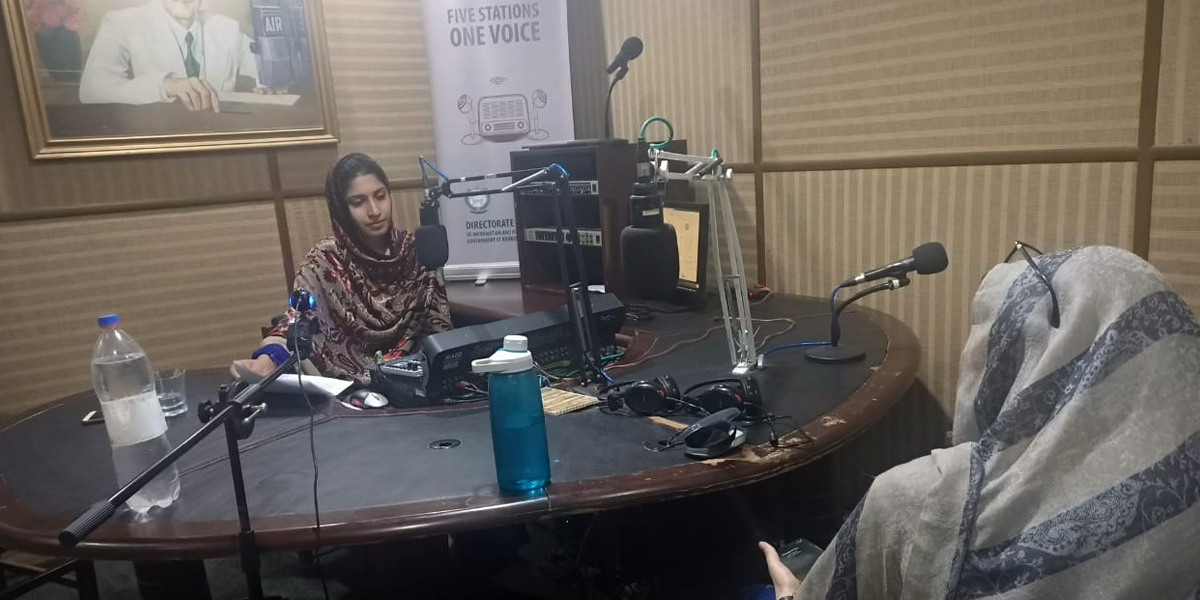The 146th radio program as part of the Center for Research and Security Studies’ (CRSS) counter-radicalization initiative Ulasi Taroon (Social Cohesion) aired on the subject theme.
The first guest on show, Dr. Abida Bano, Lecturer, Institute of Peace and Conflict Studies (IPCS), University of Peshawar, noted that the role of women in peace processes is very important and their inclusion is advantageous to successful and sustainable conflict resolution. She referred to the United Nations Security Council Resolution 1325 on women, peace, and security, which was adopted unanimously by the UN Security Council on 31 October 2000. While this resolution acknowledges how women are disproportionately and uniquely impacted by armed conflict, it reaffirms the significant role that women play in conflict prevention, conflict resolution, and peace-building, emphasizes the importance of women’s equal involvement in peace and security and the need for women’s increased participation in conflict prevention and peace-building.
Several social scientists and researchers theorize that inclusion of women in the peacebuilding processes increases the chances of success, and therefore underscore the need to adopt gender perspective in peacebuilding. The values key to inclusion of women are also enshrined in the constitution of Pakistan vide articles 8-28, that testifies that women have an undeniable role in peacebuilding. Increased representation of women in different walks of life can not only cultivate their potential but also benefit the socio-political and economic development of the country. Family level dynamics greatly affect inclusion of women in the society and are key to raising future women leaders by valuing their opinion, and encouraging and inculcating confidence in them.
Identification of the root causes of conflict is crucial for successful conflict resolution. Avoiding this critical step only leads to the recurrence of conflicts. Sustainable peace only comes through building inherent communal disposition to resort to dialogue to figure differences.
The second guest on phone, Dr. Jamil Ahmed Chitrali from Institute of Peace and Conflict Studies (IPCS), University of Peshawar, noted that as a matter of both international and constitutional compulsion, women need to be involved at every stage of peacebuilding process to achieve lasting cohesion in the society. Peace is not merely the absence of war, manifest is how we are witnessing absence of peace across the world because of the pandemic, though there is no war.
The third guest on show, Ms. Kainaat, CRSS’s Ulasi Taroon Alumna, said that women empowerment can only come through social inclusion, where women are consciously involved in the democratic processes, and given space to explore opportunities for social mobility.
Youth has a great social change potential and all they need are opportunities for socio-political and economic participation and development, and education to develop critical thinking and peacebuilding skills.
About Ulasi Taroon
Ulasi Taroon is a counter radicalization initiative of Center for Research and Security Studies that aims to address the radicalization challenges, extremist ideologies and foster social cohesion through a discourse anchored in the core constitutional values which are fundamentally essential prerequisites for social peace and harmony. The endeavor aims to cultivate and sensitize the people of KP in the core values in the Pakistani constitution and our social contract. It’s an attempt to highlight the criticality of abiding by these ideals – such as adherence to rule of law, primacy and sanctity of constitution, equal citizenry, responsible citizenship, respect for fundamental human rights, tolerance for diversity and different opinions, inclusive democracy and good governance – as a measure of strengthening social cohesion and promoting peaceful co-existence.

